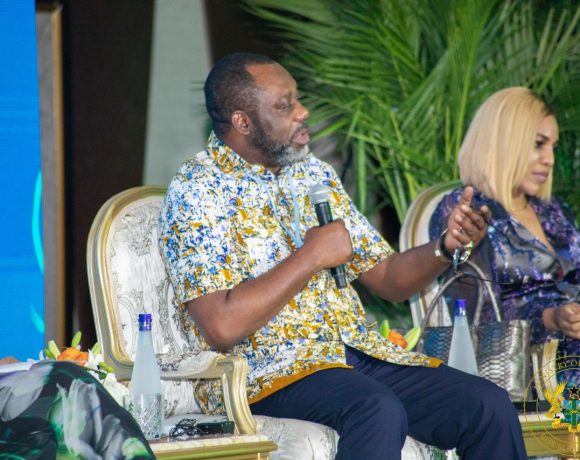Citi FM, NRGI Train Journalists On Energy Transition

By Gifty Arthur
Citi FM, in partnership with the Natural Resource Governance Institute (NRGI), has organized a training programme on energy transition for journalists.
The one-day programme, held in Accra, brought together experts from the energy sector, who, in separate presentations, took participants through the much-talked about energy transition, which Ghana has committed to move to by 2070.
Energy transition is a continuing process, requiring long-term energy strategies and planning, with a country-tailored focus on applying appropriated energy technologies to each net-zero emissions.
Themed “Building media capacity for effective energy transition reporting,” the programme aimed to equip the media with the necessary knowledge for accurate reportage of issues concerning the energy transition discourse.
The well-attended and educative training had some of the journalists selected from other parts of the country joining virtually.
Speaking on the topic “Climate change and Ghana’s energy transition pathway,” the Deputy Director at the Energy Ministry, Dr. Robert B. M. Sogbadji, said there is so much Ghana can derive from the transition.
He however said the transition plan is estimated to cost Ghana US$256billion.
Touching on some of the benefits, Dr. Sogbadji said the transition will lead to the creation of more jobs, cheaper source of energy and clean quality air, among others.
According to him “Ghana has the opportunity to install clean energy technology to have access to the green bond market, trade carbon credits as well as opportunities, based on economics, Ghana can safely transition in 2070 without going bankrupt, this is because by 2070, the Gross Domestic Product (GDP) will rise to $863.7billion with an average annual growth rate of 5%.”

He was however quick to add that the transition, which was birthed during the Paris Agreement, a legally binding international treaty on climate change by 196 Parties at the UN Climate Change Conference (COP21) in Paris, France, on 12 December 2015, will also come with it adverse impacts.
He said while Ghana works to rake in the full benefits of the transition, the country should ensure it minimizes adverse effects, like job losses, reduced funding for fossil related projects, potential threats to energy security, stranded assets and a lot more.
Themed “Building Media Capacity For Effective Energy Transition Reporting,” the training programme, also had a legal perspective.
A senior lecturer at the Ghana Institute of Management and Public Administration (GIMPA), who is also the Country Principal, Client Earth, Clement Akapame, speaking on the topic “Existing Policy, Legal and Regulatory Framework for Energy Transition,” said that, despite Ghana committing to international associations to shift to clean energy in due course, government is yet to develop a policy framework that is legally bidding for the transition and climate change.
The one-time journalist said this should be ironed out, as Ghana works to make the shift, as the absence of it will make government get away from some dangers that may rear its head.
He said, over the years, even though government is signatory to many agreements globally, when it comes to climate change and energy transition, it is yet to localize them or include them in municipal laws.
“So now our law is clear that when you sign an international convention, even when it is ratified by Parliament, it is not enough. You would have to reduce the tenet of international convention or agreement into the municipal law or domestic law. So an act of Parliament, a regulation must be passed by Parliament to give it recognition to the provision international law,” he said.
He pointed out that Ghana’s sources of law on climate change will come from both domestic legislations and international laws.
“And at the level of international law, we will not have our courts enforce those international provisions if we have not reduced them into acts of Parliament or regulations.

“So if we want to be very strong with our commitment under that Paris Agreement, we need to start reducing these agreements into domestic legislations because that is where I will be able to hold government responsible in court to say because of provision in act this, you are unable to do that but currently our framework for dealing climate change is largely within the policy and strategy level without clear legislation,” Mr. Akapame added.
A senior staff at the Ghana Gas Company Limited, Riverson Oppong, said even though he is not against energy transition discussion, he advised that the movement be tackled holistically.
He prayed that the 2030 timeline given during the Paris Agreement for the world to transition would be met.
In the specific case of Ghana, Mr. Oppong urged that the country, in implementing the Sustainable Development Goals 7 and energy transition plan, to look at using the 3As, being affordability, availability and accessibility, to sustain energy.
The last presentation was conducted virtually by NRGI’s Patrick Stephenson.
Source: Anchorghana.com




